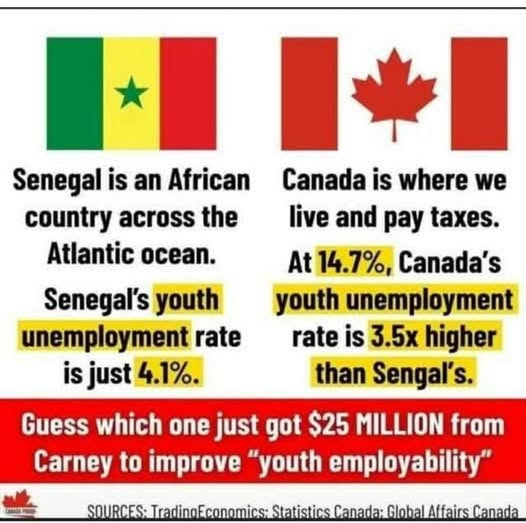
Tag Archives: foreign aid
[And this was the backward basketcase Canada committed over a billion dollars to in 2010. We’re fools!]

Haiti – the Western Hemisphere’s oldest independent black republic – has collapsed into Third World chaos once again as its African population pillaged, burned and vandalized shops in the capital city in ingoing violence despite the government backing down from attempts to raise the fuel price – allegedly the cause of the latest outbreak of unrest.
African rioters blocked streets using felled trees and large rocks as well as piles of tires set on fire all over Haiti on Sunday while many damaged or looted stores stayed closed for a third day.
The charred remains of cars could be seen in several spots around the sprawling capital city of Port-au-Prince, including in front of the Best Western and Oasis hotels, in the capital’s southern hilltop suburb of Petion-Ville, as well as near the offices of telecommunications company Natcom.
The U.S. embassy warned its citizens to avoid the unrest in the capital Port-au-Prince and reschedule travel plans as several airlines canceled flights.
Stay Connected With Us

At the Toussaint Louverture international airport—named after the African who led the rebellion which created Haiti and who later declared himself “Governor for life”—dozens of stranded white and foreign travelers camped out waiting for flights to resume.
Across the capital, few cars and motorcycles were moving on the rubble-strewn streets on Sunday, while broken windows and damaged buildings were a common sight.
At a shopping center in Petion-Ville, police tried to secure shops, with broken glass and merchandise scattered on the floor.
Both the Canadian and Mexican embassies in Haiti announced that they would be closed on Monday.
The decision to raise fuel prices was part of an agreement with the International Monetary Fund, which requires the impoverished country to enact measures to boost government revenue and services and strengthen the country’s economy.
“Due to continuing demonstrations, roadblocks, and violence across Port-au-Prince, as well as short staffing at the airports, embassy personnel have been instructed to re-book any flights originally scheduled for Sunday,” the U.S. embassy said in a statement.

“Telecommunications services, including Internet and phone lines, have been affected throughout Haiti,” the embassy added. “It may be difficult to reach people through normal communication methods.”
A spokesman for U.S. carrier American Airlines Group Inc said it had canceled three out of seven round trip flights scheduled to stop in Port-au-Prince on Sunday.
JetBlue Airways Corp also canceled its flights to Haiti on Sunday.
Foreign journalists saw Africans stripping shelves bare in some supermarkets that were charred from the protests. Several bodies lay among debris scattered in the streets.
At least three blacks were killed in protests Friday, and police said the bodies of four people were found Sunday in the streets of the Delmas district, though they didn’t say if that was related to the protests.
On Friday, the bodyguard of a politician was killed in an altercation with demonstrators in Port-au-Prince as he attempted to force a passage through a roadblock, with his body then burned in the road.

Burning tires continued to block major routes in the capital, while sporadic gunfire could be heard in several of its districts. Fearful of moving across the city, many decided to spend the night at their offices or businesses.
Conscious of how unpopular the announcement about the proposed price increase was, ministers held a press conference about the price increase during the World Cup soccer quarter-final match of Brazil, the side most Haitians fervently support.
Even then, only at the end of the match, in which Brazil was eliminated at the hands of Belgium, did the Africans in Port-au-Prince start rioting and looting.
Haiti received more than US$4 billion in aid from 1990 to 2003, including US$1.5 billion from the United States. Nonetheless, Haiti is one of the world’s poorest countries and the poorest in the Americas region, and dominated by poverty, corruption, poor infrastructure, lack of health care and lack of education—living proof that race, not environment, determines civilizational levels.

